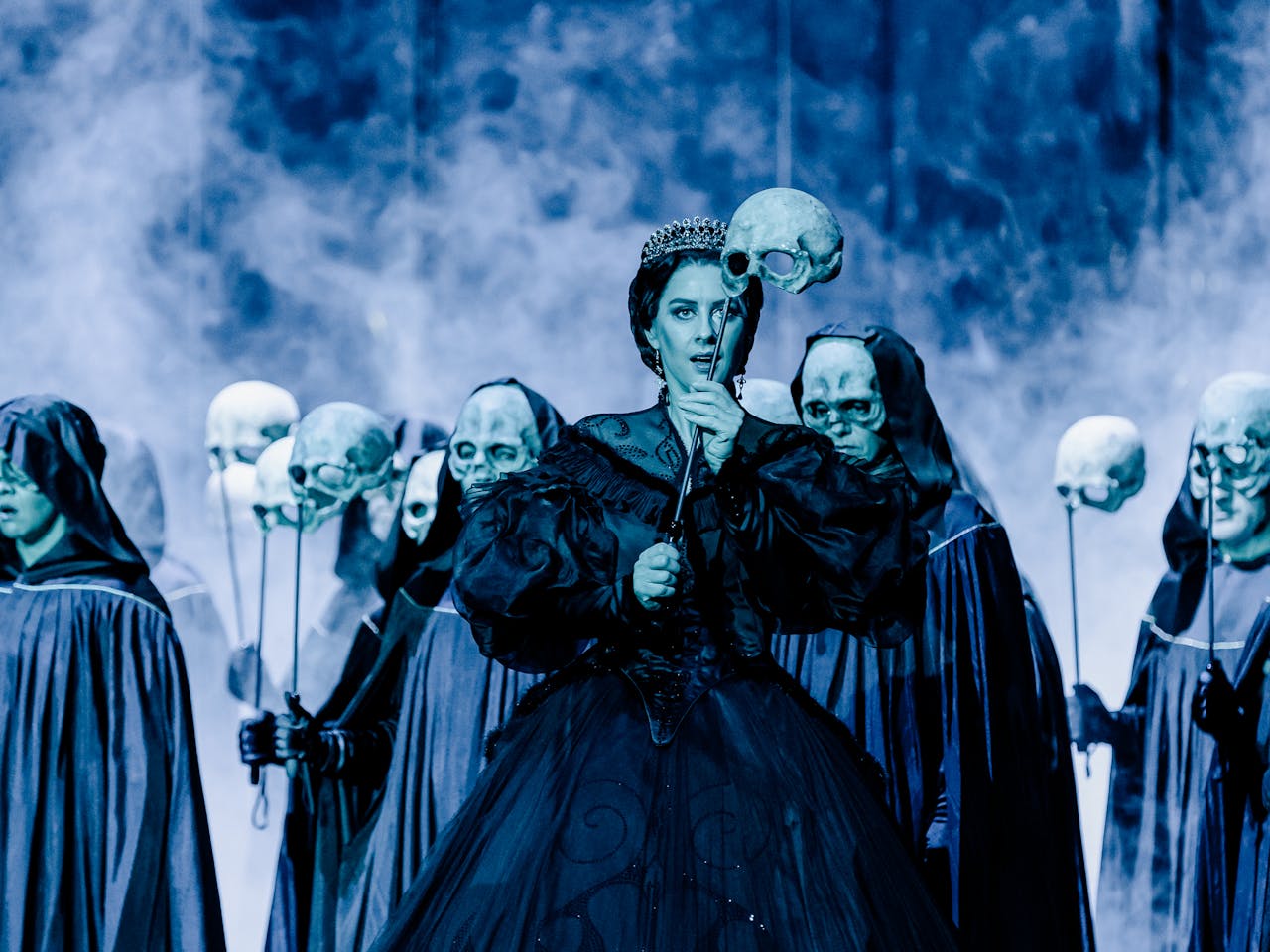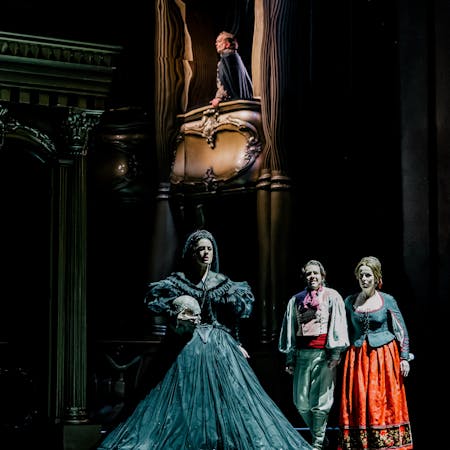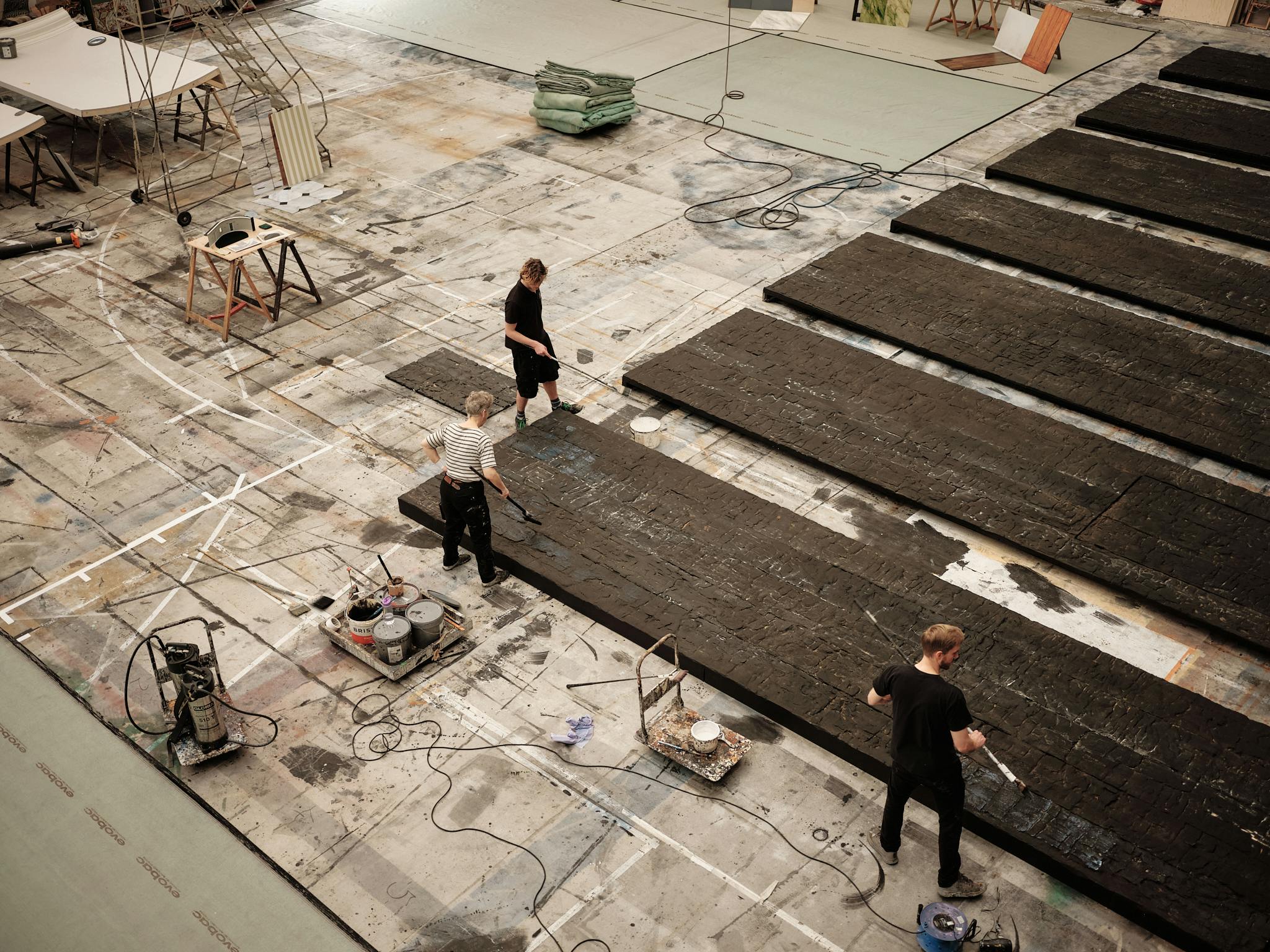The Sicilian Vespers
The Sicilian Vespers
The Sicilian Vespers
Revolutionary spirit and bloodthirsty tragedy in Verdi’s spectacular grand opera.

Verdi’s enthralling tale of loyalty and revenge unfolds against the backdrop of opulent 19th-century Paris.
Verdi’s enthralling tale of loyalty and revenge unfolds against the backdrop of opulent 19th-century Paris.
The Royal Danish Opera
Royal Ballet and Opera Principal Julia Rausing Trust
The Royal Opera House Endowment Fund
A bloody uprising

Sicily is living under French occupation. Hélène, a Sicilian noblewoman, seeks revenge for her brother’s execution at the hands of the French. Meanwhile her lover, Henri, is torn between his Sicilian roots and his loyalty to Montfort, the French governor – whom he learns is his father. As the young couple’s romance begins to fracture and political tensions rise, the Sicilians plot a rebellion against their French occupiers, culminating in a climactic confrontation during the evening prayers.
Background
Speranza Scappucci makes her debut as Principal Guest Conductor of The Royal Opera, bringing Verdi's grand opera to electrifying life. Stefan Herheim's enthralling production features an all-star cast, including Marina Rebeka, SeokJong Baek, Ildebrando D'Arcandelo and Quinn Kelsey.
The Real Sicilian Vespers
The Sicilian Vespers was a real historical event that took place on 30 March 1282, in Palermo, Sicily. It began as a bloody uprising by the Sicilian people against the oppressive rule of Charles I of Anjou, the French king who had taken control of the Italian island in 1266. Frustrated by high taxes, forced labour and foreign rule, the Sicilians were ready to revolt. The spark for their rebellion came on Easter Monday during evening prayers – or ‘vespers’ – when a conflict erupted between Sicilians and French soldiers at the Church of the Holy Spirit. According to legend, a French soldier insulted a Sicilian woman, leading to outrage among the Sicilians, who attacked and killed him. This set off a spontaneous uprising across the island, with Sicilians slaughtering thousands of French civilians in an attempt to rid Sicily of foreign domination.
Verdi’s Version
Verdi’s Les Vêpres siciliennes (also I vespri siciliani, in Verdi’s later-composed Italian version) draws directly from the events of the rebellion, its foundation in Sicilian defiance against French rule setting the scene for a rich drama of divided loyalties and revenge. The opera’s political message resonated with Verdi’s own times, as Italy in the 19th century was embroiled in a struggle for unification – known as the ‘Risorgimento’ – and independence from foreign rule. By reimagining a historical rebellion, Verdi not only dramatised the timeless themes of oppression and resistance, but also subtly aligned the opera with Italian nationalistic sentiments.
Grand Opera at its Finest
Weaving elements of French grand opera – elaborate choruses, ballet and monumental set pieces – with Verdi's signature Italianate lyricism and emotional directness, Les Vêpres siciliennes captures both the grandeur of historical epics and the intimacy of personal conflict. Pairing sweeping orchestration with intense vocal writing, the score is marked by striking contrasts between soaring arias, powerful ensembles and moments of lyrical tenderness.
Cast and Creatives
Cast
The cast of this production may vary depending on performance date. Go to cast and dates to see these.
Creatives
Reviews

Access
There is lift access and step-free routes to over 100 seats in the Stalls Circle, Balcony and Amphitheatre. There are 10 steps or fewer to some seats in the Stalls Circle, Balcony, Amphitheatre and the Donald Gordon Grand Tier. All seats in the Orchestra stalls are accessed by 9 steps or more. A handheld bell is rung by Front of House staff to signal guests to take their seats before a performance. The bell is loud and can be startling. The bell is rung approximately ten minutes before the show starts and at each interval.
We have an assistive listening system available to use. This opera is sung in French with English surtitles.
Join our Access Scheme for priority access performance tickets and to personalise your account for your access requirements.
See our Accessibility page for more information on access at the Royal Opera House.

Donate
The Royal Ballet and Opera is a charity and relies on your support. No matter the size, every gift is critical to our work and helps us to secure the future of ballet and opera.
Your donation will enable us to keep extraordinary work on our stages, inspire the next generation and support the Royal Ballet and Opera's community of artists, technicians and craftspeople.
For people, not profit. Making world class ballet and opera for everyone.
Royal Opera House Covent Garden Foundation, a charitable company limited by guarantee incorporated in England and Wales (Company number 480523) Charity Registered (Number 211775)
